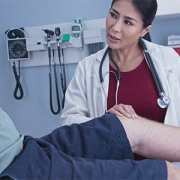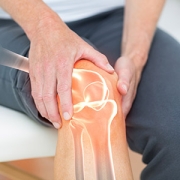How to Prepare for Minimally Invasive Orthopedic Surgery
Minimally invasive orthopedic surgery offers numerous benefits, including smaller incisions, reduced pain, faster recovery, and improved surgical outcomes. If you’re scheduled for such a procedure, it’s essential to be well-prepared to ensure a smooth and successful experience. In this article, we will provide you with valuable insights and tips on how to prepare for minimally invasive orthopedic surgery, drawing upon the expertise of Brandon Gough, M.D., a renowned orthopedic surgeon at Gough M.D.
Understand Your Procedure
Before undergoing any surgery, it’s crucial to fully comprehend the details of the procedure. Explore Dr. Gough’s website to find information about the specific minimally invasive orthopedic surgery you will be undergoing. Read the blog section to gather insights and learn about the latest advancements in the field. Understanding the surgery will help alleviate anxiety and allow you to ask informed questions during consultations.
Consultation and Preoperative Evaluation
Schedule a consultation with Dr. Gough to discuss your surgery in detail. During this appointment, he will evaluate your medical history, conduct a physical examination, and order any necessary preoperative tests. Be sure to provide accurate information about your current medications, allergies, and previous surgeries. This information will help Dr. Gough assess any potential risks and make necessary adjustments to your treatment plan.
Preparing Your Body
Maintaining good overall health is important for a successful surgery and speedy recovery. Follow these guidelines leading up to your surgery:
- Eat a balanced diet: Ensure your diet includes adequate protein, vitamins, and minerals to promote healing. Consult a registered dietitian if needed.
- Quit smoking: Smoking can impede the healing process. If you smoke, make every effort to quit before your surgery.
- Manage medications: Follow Dr. Gough’s instructions regarding medication use, including any modifications or discontinuations.
- Exercise and strengthen: Engage in light exercises as recommended by your doctor to improve your physical fitness. Focus on strengthening the muscles surrounding the surgical area.
Prepare Your Home
Before your surgery, make your home environment conducive to your recovery:
- Create a comfortable recovery space: Prepare a clean and clutter-free area where you can rest and move around with ease. Arrange essential items within easy reach.
- Stock up on supplies: Purchase necessary supplies, such as medications, bandages, ice packs, and assistive devices, in advance.
- Arrange for assistance: Enlist the help of a family member or friend to provide support during the initial days of your recovery. They can assist with household chores, transportation, and personal care if needed.
Plan for Transportation and Accommodation
Determine how you will travel to and from the surgical facility. Ensure you have a reliable mode of transportation arranged. If your surgery requires an overnight stay, discuss accommodation options with Dr. Gough’s team and make the necessary arrangements in advance.
Follow Preoperative Instructions
Dr. Gough and his team will provide you with specific preoperative instructions. Adhere to these guidelines diligently, which may include fasting before surgery, showering with antibacterial soap, and avoiding certain medications or supplements.
Mental and Emotional Preparation
Preparing mentally and emotionally is equally important. Here are some tips to help you stay positive and reduce anxiety:
- Seek emotional support: Share your concerns with loved ones and seek their support throughout the process.
- Educate yourself: Gather information about the surgical process, expected outcomes, and the postoperative recovery period. This knowledge will empower you and alleviate fears.
- Practice relaxation techniques: Engage in activities like meditation, deep breathing exercises, or yoga to reduce stress and promote











